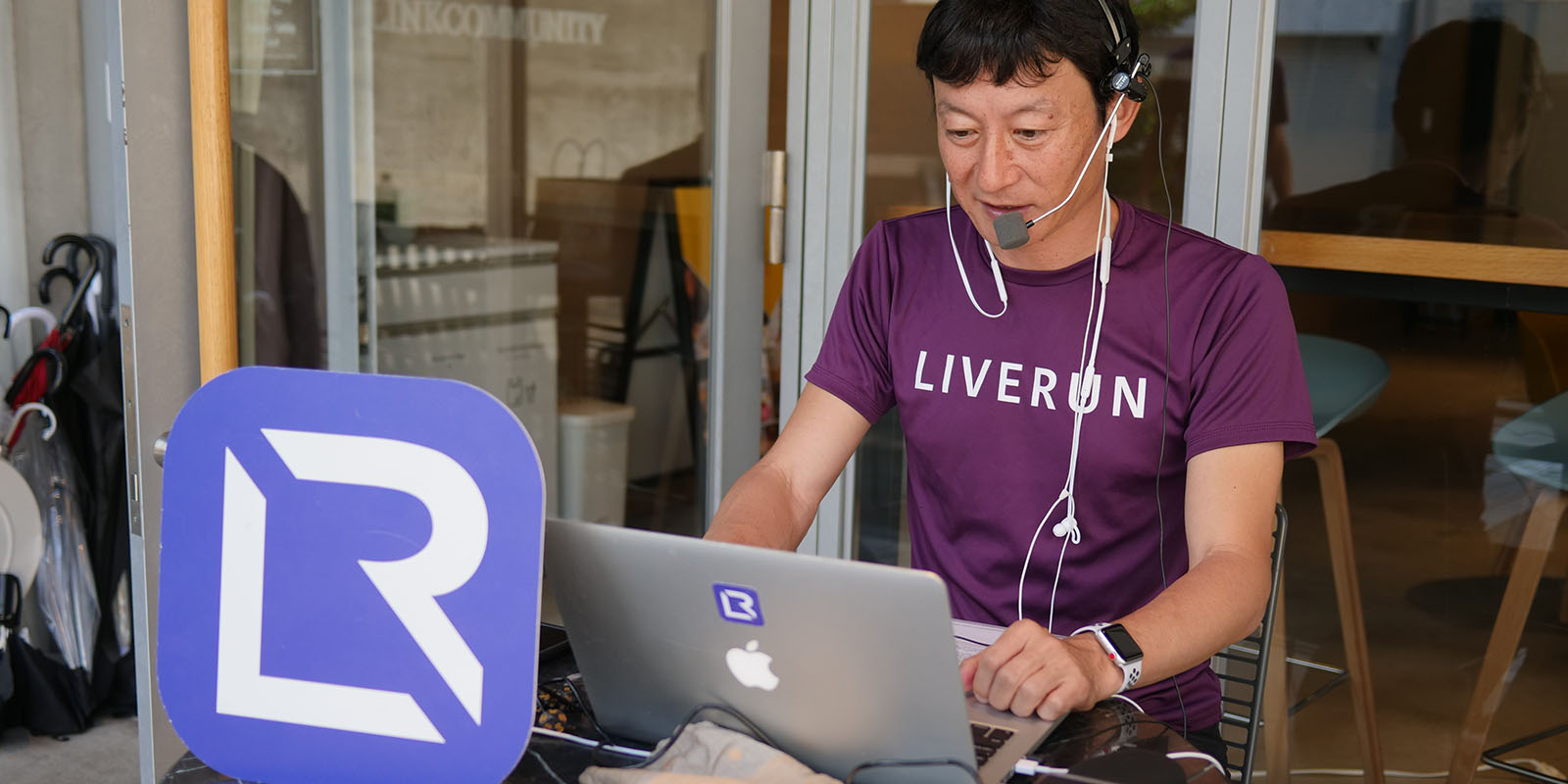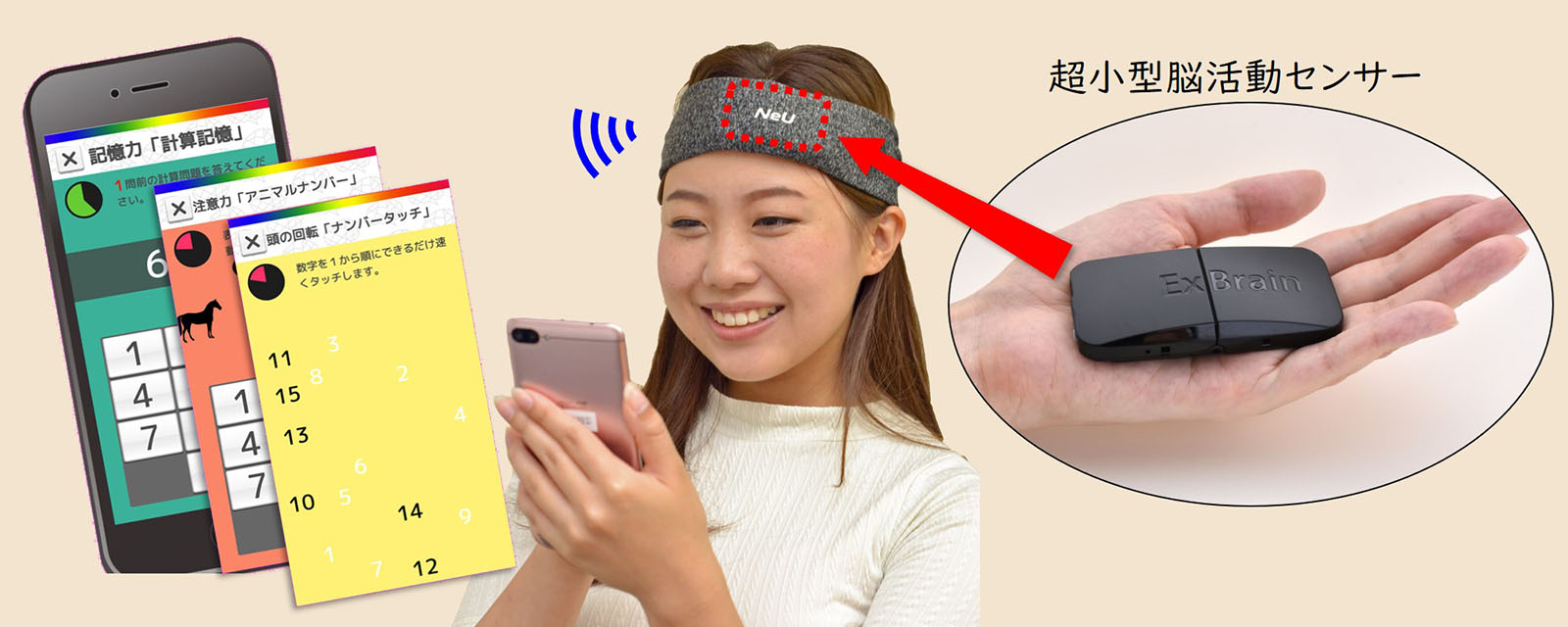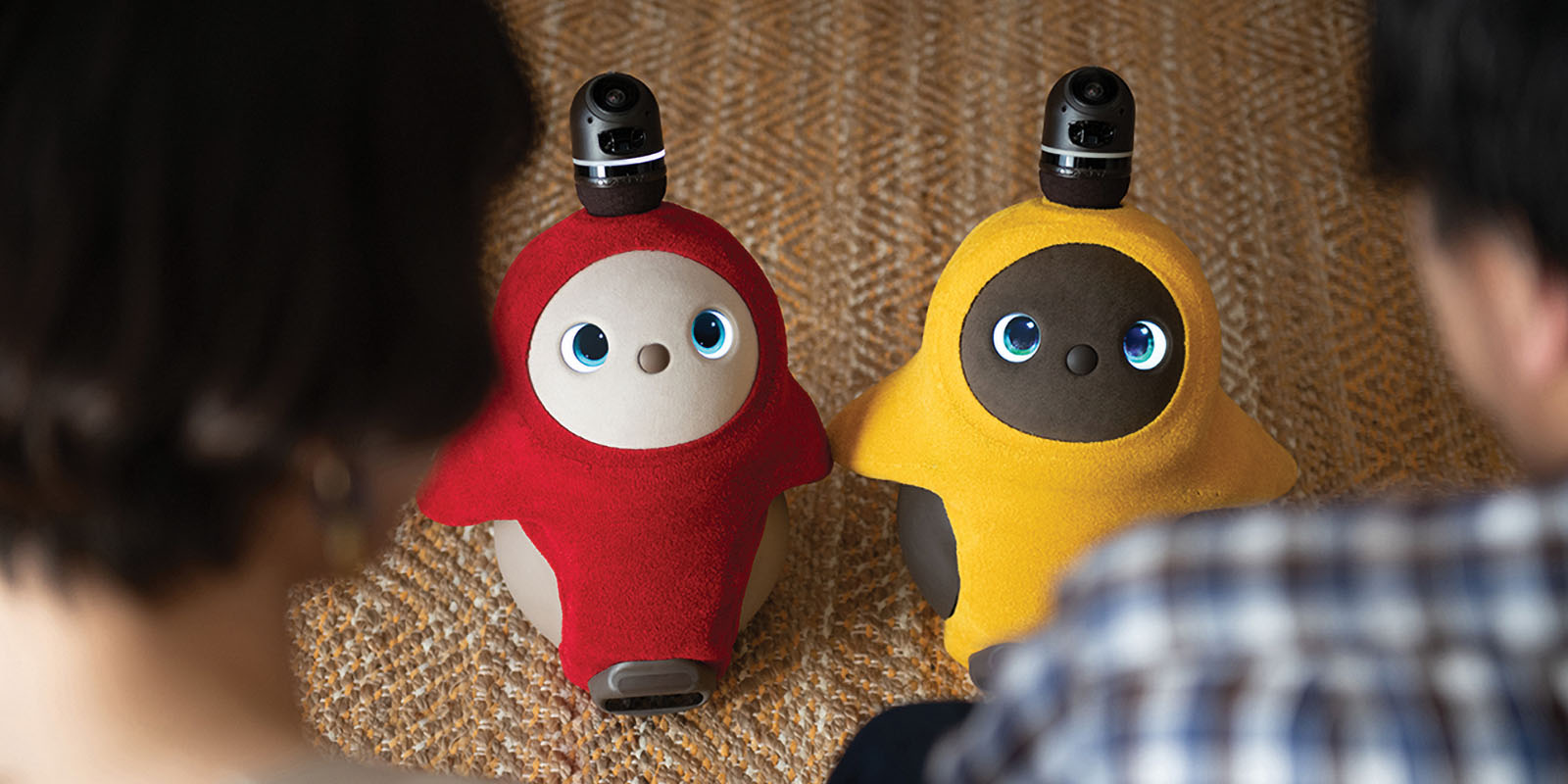Engineering a better tomorrow
Three Japanese welltech innovations looking to improve the way we all live
Guide: Aya Hasegawa
The coronavirus pandemic has accelerated the pace of digital transformation around the world and led to the rise of so-called ‘welltech’ – wellness technology. Here, three leading Japanese tech firms explain how they hope to help people’s mental and physical health.

1. A personal trainer in your ear
LiveRun
Imagine your own personal trainer providing words of encouragement directly into your ear as you exercise – that’s the idea behind LiveRun, the world’s first live commentary workout app. “Participants can join the session from their desired location and begin running simultaneously when it’s time to start,” explains LiveRun’s CEO Tomoyuki Takada. “The trainer provides running tips and broadcasts real-time status of the leaderboard based on the distance participants cover, saying things like ‘A is currently running in first place’ or ‘B is set to beat their personal best’.” People can join free sessions on LiveRun, while a monthly fee of ¥1,000 is required to join Club Member Sessions. LiveRun offers seven to ten sessions a day, with activities like running, walking, yoga and strength training. “Exercise is one of the best ways to enhance people’s health. The issue is to keep people motivated,” says Takada. “It can be boring to go on a 30-minute running session alone. We thought hard about how to keep people motivated to exercise habitually. Our solution was to provide a sense of community, a game-like feeling of entertainment, and an ease of joining from any location. Users feel like they are taking part in an interactive radio show.”
2. A new generation of mind gym

Active Brain Club
The man behind the 2005 Nintendo DS hit ‘Brain Age: Train Your Brain in Minutes a Day!’ is back with another innovative item of mind-gym technology. Inspired by research showing that brain function decreases after adolescence, Dr. Ryuta Kawashita, a professor at Tohoku University who has been researching the brain for 30 years, has helped develop the Active Brain Club, a micro brain activity sensor and app.
Join the club and you’ll receive a brain activity sensor and phone app to measure the activity of your brain and give it a workout. The ultra-light sensor, which uses weak near-infrared light to measure changes in blood flow to detect brain activity, triggers your smartphone screen to change color based on whether or not your mind is being stimulated. “There are many brain training programs out there, but we wanted to provide something that would help Japan’s aging population,” says Kawashita. “Cognitive function training not only staves off dementia, but can improve work performance, study efficiency for students, and even intelligence.”

3. A loveable robot
LOVOT
When we think of the role of robots, we usually imagine them doing arduous human tasks, to spare us the time and tedium of a job that could be automated. But LOVOT, designed by robotics startup Groove X, is designed to do nothing but show us love. “We have used technology not to improve convenience or efficiency, but to enhance levels of comfort and feelings of love,” says Groove X CEO Kaname Hayashi. “Our goal is simple: to create a robot that makes you happy.”
Each LOVOT – a portmanteau of love and robot – is equipped with a microphone, a 360° camera, and thermographic sensors to identify whether they are facing a human or an object. Call your LOVOT’s name and it rolls to you for a hug. Hold it in your arms, and it feels warm. Tickle it, and it laughs. “With technological advances we have seen a growing gap between our lifestyles and our emotional engagement and sense of satisfaction. LOVOT was made to help bridge that gap,” says Hayashi.
Each LOVOT, which costs ¥318,000 plus additional monthly maintenance costs, is unique with customizable eyes, voices and features. According to the developers, LOVOTs remember interactions with people, allowing for relationships to develop organically. Since first shipping in December 2019 LOVOT has spread an awful lot of love and there is currently a three-month waiting list for new customers. It’s clearly getting lots of love back.